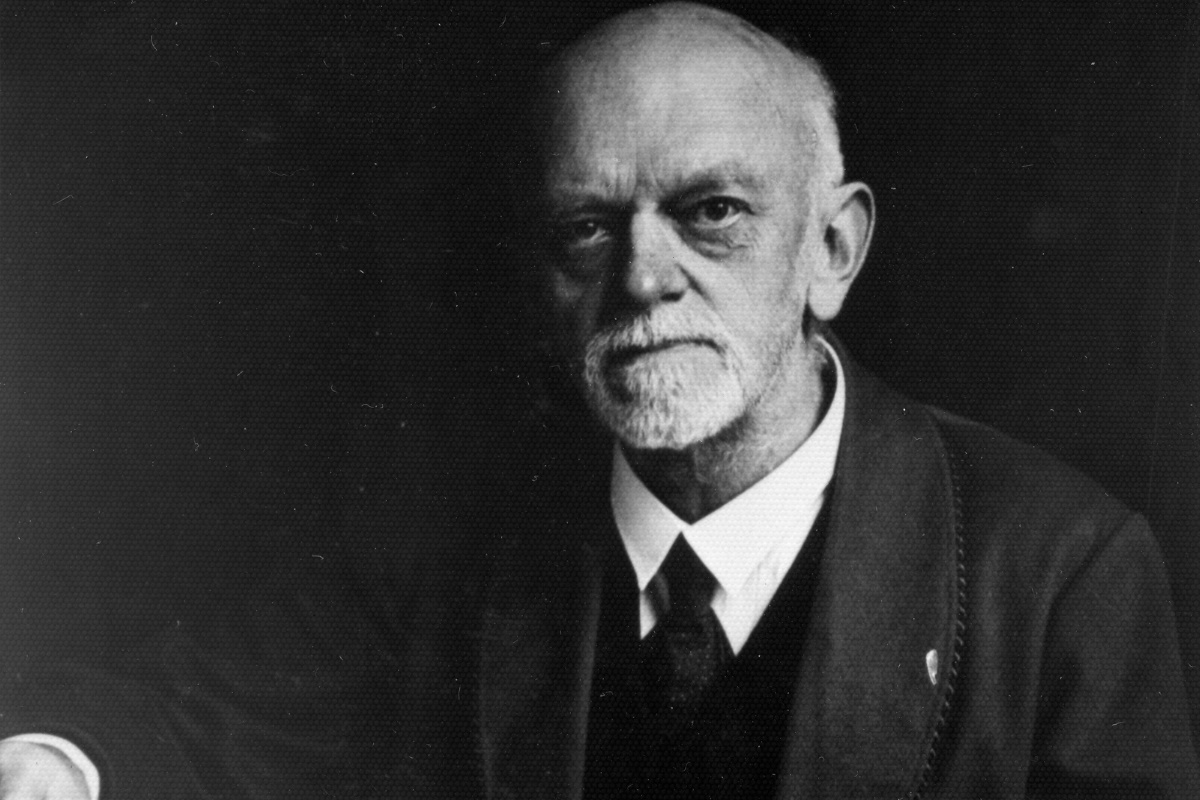
When it comes to the field of mathematics, there are few names that carry the same level of prestige and influence as David Hilbert. Born on January 23, 1862, in what is now Poland, Hilbert made significant contributions to a wide range of mathematical disciplines, leaving an indelible mark on the field.
In this article, we will delve into eight astounding facts about David Hilbert, shedding light on his life and achievements that have earned him a place among the greatest mathematicians of all time. From his groundbreaking work in geometry to his famous list of 23 unsolved problems, Hilbert’s impact on mathematics continues to reverberate to this day.
Key Takeaways:
- David Hilbert was a math superstar who made big waves in the world of numbers. His ideas still influence math today, and his famous problems are still unsolved!
- Hilbert’s love for math and his brilliant teaching skills inspired many famous mathematicians. His legacy lives on, shaping the world of numbers and quantum mechanics.
The Father of Modern Mathematics
David Hilbert, born on January 23, 1862, in Germany, was one of the most influential mathematicians of the 20th century. His groundbreaking work laid the foundation for many areas of mathematics and his impact is still felt today.
A Master of Mathematical Logic
Hilbert was a pioneer in the field of mathematical logic. He developed a formal system known as “Hilbert’s Program” with the goal of establishing a complete and consistent foundation for all of mathematics. This ambitious endeavor had a profound impact on the development of mathematical logic and set the stage for future advancements in the field.
Contributions to Geometry
Hilbert’s work in geometry was revolutionary. He introduced the concept of “Hilbert space,” a mathematical structure that has become a fundamental tool in the field of quantum mechanics. His contributions to geometry also include the development of the axiomatic method, which provides a rigorous foundation for the study of geometry.
Hilbert’s Famous 23 Problems
In 1900, Hilbert presented a list of 23 unsolved problems in mathematics that he believed would shape the future of the field. Dubbed as “Hilbert’s Problems,” these challenges spurred significant advancements in various branches of mathematics and many of them remain unsolved to this day.
Lecturer Extraordinaire
Hilbert’s skills as a lecturer were legendary. His lectures were known for their clarity and elegance, and he had the ability to captivate audiences with his deep insights into complex mathematical concepts. His teaching influenced generations of mathematicians and his lectures are still studied by students today.
A Mentor to Prominent Mathematicians
Throughout his career, Hilbert mentored several prominent mathematicians who went on to make significant contributions to the field. Some of his notable students include Hermann Weyl, Ernst Zermelo, and Carl Gustav Hempel. Hilbert’s guidance and support paved the way for their success.
Hilbert’s Impact on Quantum Mechanics
Hilbert’s work on Hilbert spaces and the mathematical foundations of quantum mechanics had a profound impact on the development of this field. His contributions provided the mathematical framework necessary for the formulation and understanding of quantum theory, revolutionizing our understanding of the microscopic world.
A Legacy That Continues to Inspire
David Hilbert’s legacy extends far beyond his lifetime. His groundbreaking ideas and profound contributions to mathematics and logic continue to inspire and shape the field. His commitment to the pursuit of knowledge and his devotion to the mathematical community have left an indelible mark on the world of mathematics.
Conclusion
In conclusion, David Hilbert was an extraordinary mathematician who made significant contributions to the field. Through his groundbreaking work in formalism, he transformed the way mathematics is approached and understood. Hilbert’s famous list of 23 unsolved problems served as a roadmap for mathematicians around the world, inspiring generations of researchers to push the boundaries of mathematical knowledge.Not only was Hilbert renowned for his brilliance in mathematics, but he was also a dedicated teacher and mentor. He played a vital role in shaping the next generation of mathematicians, sparking their curiosity and nurturing their talents.The impact of Hilbert’s work and ideas continues to be felt today. His legacy lives on in the countless mathematicians who have been influenced by his teachings and discoveries. David Hilbert’s remarkable achievements have cemented his place as one of the most celebrated mathematicians in history.
FAQs
Q: Who was David Hilbert?
A: David Hilbert was a German mathematician who lived from 1862 to 1943. He is best known for his contributions to the field of mathematics, particularly in the areas of algebra, geometry, and mathematical logic.
Q: What is formalism in mathematics?
A: Formalism is a mathematical philosophy that focuses on the manipulation of symbols and the logical rules governing them. Hilbert played a crucial role in the development of formalism, which aimed to establish a strong foundation for mathematics.
Q: What are Hilbert’s 23 unsolved problems?
A: Hilbert’s 23 unsolved problems, also known as Hilbert’s Problems, were a set of challenges put forth by David Hilbert in 1900. These problems covered various areas of mathematics and served as significant catalysts for mathematical research in the 20th century.
Q: How did Hilbert contribute to algebra and geometry?
A: Hilbert made groundbreaking contributions to both algebra and geometry. In algebra, he formulated the concept of an infinite-dimensional vector space, paving the way for the development of abstract algebra. In geometry, Hilbert’s axiomatization provided a rigorous foundation for the subject.
Q: What was Hilbert’s impact on mathematical education?
A: Hilbert was a dedicated teacher and mentor who significantly influenced mathematical education. He played a crucial role in establishing the Göttingen School of Mathematics, which became a renowned center for mathematical research and education.
Q: How is Hilbert’s work relevant today?
A: Hilbert’s ideas and contributions continue to have a profound impact on modern mathematics. Many of the concepts and techniques he developed are still widely used today, shaping the way mathematicians approach and solve problems.
David Hilbert's groundbreaking work laid the foundation for modern mathematics, but his influence extends far beyond his famous 23 problems. Hilbert's Nullstellensatz, a fundamental theorem in algebraic geometry, is another testament to his genius. This powerful result connects the abstract world of polynomial equations with concrete geometric objects, opening up new avenues for mathematical exploration. Dive deeper into the fascinating world of Hilbert's mathematics and uncover the secrets behind his enduring legacy.
Was this page helpful?
Our commitment to delivering trustworthy and engaging content is at the heart of what we do. Each fact on our site is contributed by real users like you, bringing a wealth of diverse insights and information. To ensure the highest standards of accuracy and reliability, our dedicated editors meticulously review each submission. This process guarantees that the facts we share are not only fascinating but also credible. Trust in our commitment to quality and authenticity as you explore and learn with us.


